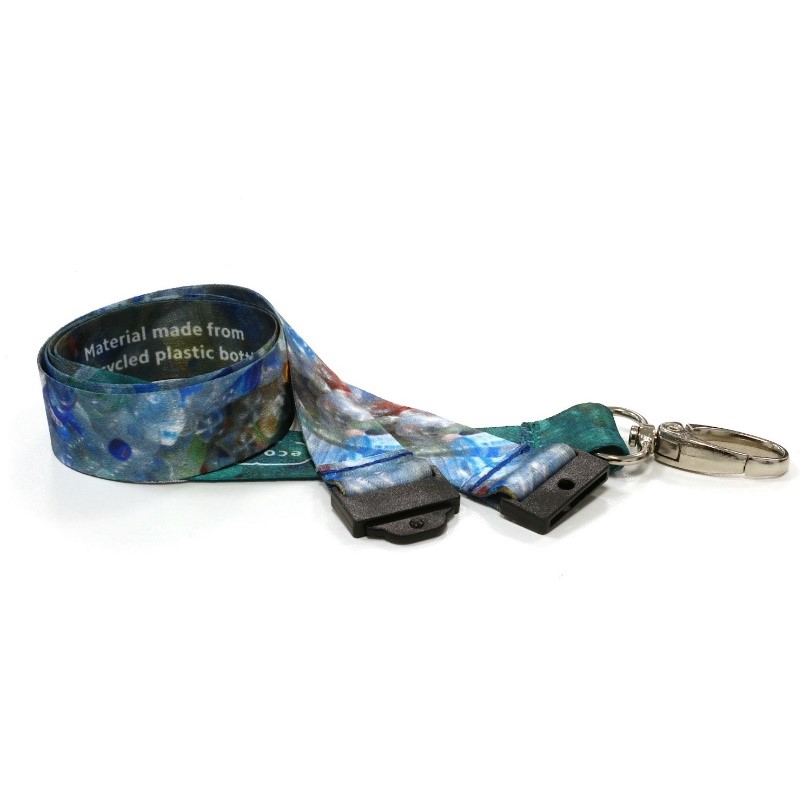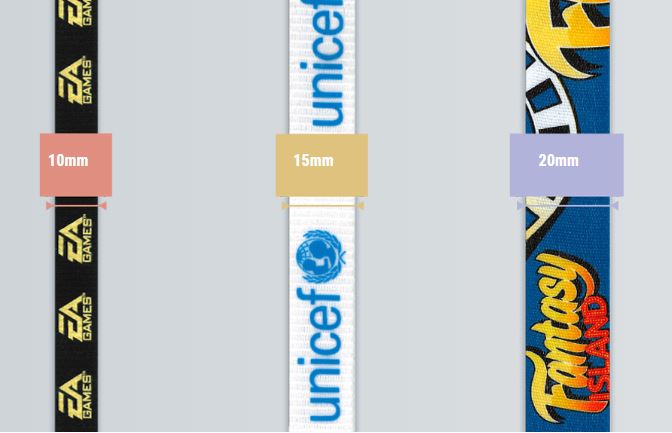Personalised lanyards in the music industry are commonplace. These neck-straps are an integral part of event security, and they’re also a great way to create exposure for a concert, gig or festival. But how can they reduce the carbon footprint of festivals and other live music events?
Music doesn’t spring to mind as an industry that has a negative environmental impact, but live events, gigs and festivals are a big contributor to pollution, and not just of the noisy kind. The sector produces 405,000 tonnes of greenhouse gas emissions every year – and that’s just in the UK. So big is the problem, that it’s a bit of a sore point with artists.
Cold Play confirmed it won’t be touring with its latest album and has paused any gigs until they become environmentally beneficial. But this isn’t just a problem for the bands. In the real world, it’s down to the promoters and venues that organise these events to become more eco-conscious.
Merchandising vs travel: What’s the biggest polluter for a band on tour?
Believe it or not, a report* found merchandising and promoting a music event is actually a bigger contributor to an event’s overall carbon footprint than the band’s travel. When a full carbon footprint of a tour was taken into account, merchandising and promotion accounted for 14% combined, while a band’s travel made up just 9% of total carbon output.
Tyndall Centre for Climate Change Research is currently mapping out a full report that will help musicians, venues and promotors make live music more sustainable. Three areas they are focusing on include band travel, audience transportation and the venues themselves.
The group’s findings will be shared with touring acts, promoters and venue owners to assist in helping them reduce the environmental impact their industry has.
How can you reduce the environmental impact of an event or festival?
But what can you do if you’re organising a music event and want to make an impact right now? A whitepaper** investigating ways of minimising live music’s CO2 suggests you should:
• Adopt an environmental sustainability procurement policy;
• Use environmentally responsible suppliers;
• Embed environmental sustainability into day-to-day operational practices.

And that’s where we step in.
Personalised rPET lanyards
Digital ID supplies personalised lanyards that are used for major festivals, gigs and music events across the UK. Because they can be fully customised, they’re also a great way to give a gig exposure and create a lasting memory for those wearing one.
We deliver millions of them every year and we’re pleased to tell you they’re now exclusively made using sustainable rPET fabric. Instead of virgin polyester, rPET (recycled polyethylene terephthalate) lanyard fabric uses pellets that come from recycled plastic bottles.
Not only does this reduce landfill waste, but their production emits 32% less CO2 when compared to virgin polyester material. Energy usage is reduced by 59% too, and the production process doesn’t use harmful chemicals.
Introducing rPET lanyards will also help to eliminate single-use plastics. That’s something Live Nation – the world’s largest festival promotor – wants to do at its venues and festivals by 2021.
Eco-friendly lanyards might seem like a relatively minor way of reducing the total carbon footprint of a music event or festival. But when you print and issue more than six million of them in 12 months, it’s something you become passionate about.

Related: A guide to ordering festival lanyards
Using rPET fabric for our personalised lanyards is just one of the ways we’re encouraging customers to transition to more sustainable products. You can find more info on our commitment to a cleaner future in our environmental policy.
*The Green Touring Guide, Jan Christian Polania Giese, Green Music Initiative
**Moving Arts, Managing the carbon impacts of our touring

